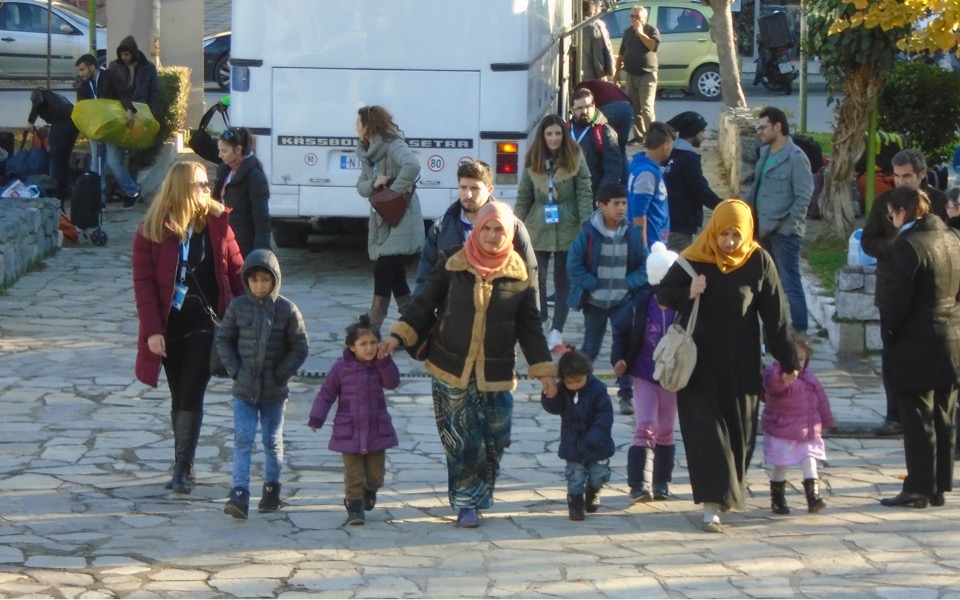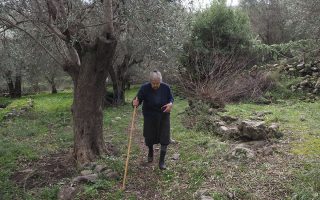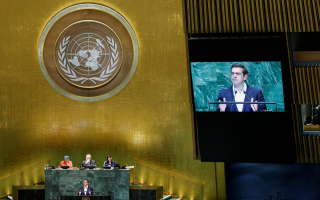The refugees who saved Greek philosophy

Walking through Athens on a recent sunny summer afternoon, I encountered some children and adults hanging laundry on a makeshift clothesline in the National Garden. Later I spot another refugee sleeping in the shade of a 3-foot shrub on the sidewalk near the University of Athens.
They are among the 7 million refugees who have fled Syria. As a foreigner in Greece who has loved this country as a home-away-from-home for over 20 years, I am proud of the heroic Greek efforts to aid refugees happening in places like Lesvos, Samos, and other Aegean islands. But I can’t understand the hostility toward refugees that some people express. As I grapple with the xenophobic indifference plaguing our response, I find myself thinking of an ancient Greek refugee story I wish more of us knew about – both in Greece and beyond.
In 529 CE, the Roman Emperor Justinian persecuted “pagans” across the Greek world in an effort to unite the Eastern Roman Empire under Orthodox Christianity. He tried to put an end to Greek intellectual culture in Athens by closing the Academy, founded by Plato in 387 BCE near a sacred grove of olive trees dedicated to Athena, the goddess of wisdom.
The first institute of higher education in the West was in peril because of religious intolerance in Rome. The Academy’s final members, who had come to Athens from far and wide, were forced to flee, hiding out for years in a monastic cave on Mount Pentelicus (Penteli) where marble for the Acropolis had been quarried. Here they kept Greek thought alive until the Sasanian emperor of Persia, King Khosrau, granted them safe harbor at his capital in Ctesiphon – south of what is now Bagdad, Iraq.
This “King of Kings” welcomed Greek refugees, who traveled freely throughout his kingdom and wound up in places like what is now southern Turkey near the border with Syria. The exiled Greek philosophers took priceless scrolls on their migrant journey. Who knows the extent of wisdom and beauty that would have disappeared if Khosrau had not welcomed these Greek refugees?
The Persian king spared Western civilization from such a grave loss, even though historically Greeks and Persians were enemies. One might think that he protected the Greek refugees only as the enemy of their enemy, but the Chronicle of Seert, a history of the Persian Christian Church, tells us that King Khosrau said: “We have not rejected anyone because they belonged to a different religion or people. And having examined the good customs and laws of our ancestors as well as those of the foreigners, we have not declined to adopt anything which was good nor to avoid anything which was bad.”
Unlike the Roman emperor, the Persian king spurned religious intolerance in favor of cosmopolitanism. The Roman emperor failed to squash Greek heritage thanks to the inclusive attitude of a knowledge-loving Persian king.
This story is ancient history, but refugees flowing in the other direction is our present reality. Since the conflict in Syria began in 2011, nearly half a million Syrian refugees have arrived in Greece, a country of only 11 million people. Many of these refugees are children, even unaccompanied infants.
The refugee crisis has had an incredible impact on Greeks who were already struggling with a debt crisis since the global financial collapse of 2007-08. Across Europe and in the US the attitudes toward refugees are the same: friendly compassion contrasted with fearful rejection.
If only we could all vividly recall when it was Greeks seeking asylum in what is now the Middle East. We should remember with appreciation the safe harbor offered by an open-minded, nondiscriminatory leader who sheltered the refugees who carried with them Western traditions like democracy and philosophy.
In my view, the world needs more of that friendly receptivity to others – whether they are those with a different religion or refugees in need of homes, food, schooling and community. It may just save our humanity as it once saved Greek philosophy.
* Dr Coleen P. Zoller is a professor and chair of philosophy at Susquehanna University in Selinsgrove, Pennsylvania.





